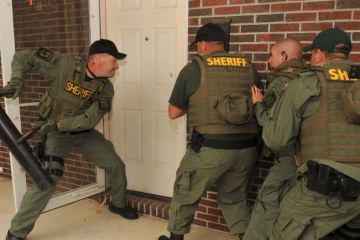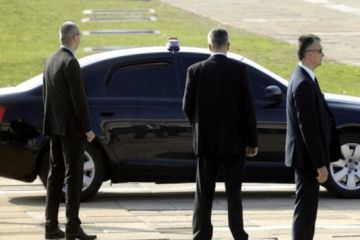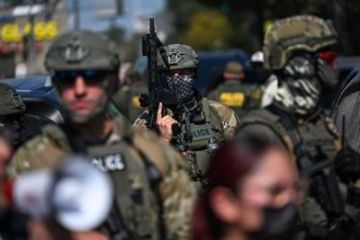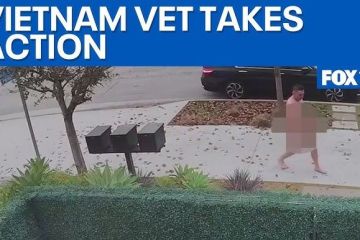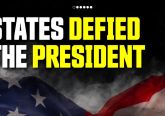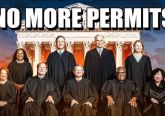Civil Liberties Groups Urge Supreme Court To Block President’s Use Of Troops In Chicago & Rein In Attempts To Establish A Standing Army
WASHINGTON, D.C. — Pushing back on President Trump’s claim that “I have the right to do anything I want to do,” a coalition of civil liberties organizations is calling on the U.S. Supreme Court to block the president’s attempt to deploy National Guard troops against civilians in Chicago—warning that no president has ever possessed unilateral, unreviewable authority to use the military against Americans on U.S. soil.
Weighing in before the Supreme Court in Trump v. Illinois, the coalition—made up of The Rutherford Institute, the ACLU, ACLU of Illinois, the Knight First Amendment Institute, and FIRE—is urging the Court to rein in the president’s repeated efforts to create a de facto standing army. The groups argue that the administration’s pattern of surging federal officers, such as ICE, into U.S. cities—Los Angeles, Portland, and Chicago—to provoke protests, then citing those protests as justification for military force, violates the First Amendment by chilling free speech and punishing dissent.
“The President’s attempt to turn the National Guard into a standing army on American soil—deploying troops against the American people—is one of the abuses of power the Constitution was written to restrain,” said constitutional attorney John W. Whitehead, president of The Rutherford Institute and author of Battlefield America: The War on the American People. “Each time the President treats ordinary protest as rebellion and sends soldiers to enforce so-called ‘order’ in our cities, he’s not defending the nation—he’s dismantling the very freedoms that define it, all the while betraying the Constitution.”
- Buy All-American!
- Bring health and vitality back to your body with these non-transdermal patches
- Get your Vitamin B17 & Get 10% Off With Promo Code TIM
- How To Protect Yourself From 5G, EMF & RF Radiation - Use promo code TIM to save $$$
- The Very Best All-American Made Supplements On The Market
- Grab This Bucket Of Heirloom Seeds & Save with Promo Code TIM
- Here’s A Way You Can Stockpile Food For The Future
- Stockpile Your Ammo & Save $15 On Your First Order
- Preparing Also Means Detoxifying – Here’s One Simple Way To Detoxify
- The Very Best Chlorine Dioxide
- All-American, US Prime, High Choice Grass-Fed Beef with NO mRNA, hormones or antibiotics... ever!
The case challenges the President’s attempt to federalize the Illinois National Guard and deploy troops to Chicago under 10 U.S.C. § 12406, which authorizes the President to call up the Guard when “there is a rebellion or danger of a rebellion against the authority of the Government of the United States; or the President is unable with the regular forces to execute the laws of the United States.” A federal district court issued a Temporary Restraining Order (TRO) blocking the deployment, finding no evidence that protests in Illinois had impeded the federal government’s ability to enforce the law. The Seventh Circuit Court of Appeals upheld the TRO, rejecting the government’s argument that local protests constituted a “rebellion.”
The Trump administration then sought emergency relief from the U.S. Supreme Court. Justice Amy Coney Barrett referred the government’s application to the full Court and requested additional briefing on whether “regular forces” refers to the regular forces of the U.S. military—and, if so, how that interpretation limits the President’s power to federalize the National Guard. The coalition’s brief emphasizes that throughout American history, the use of the military in domestic affairs has been tightly restricted by law, tradition, and the Posse Comitatus Act, which forbids federal troops from engaging in civilian law enforcement except in the most extraordinary circumstances. Yet, as amici note, the president has invoked exaggerated claims of violence to justify troop deployments under Section 12406 in multiple cities. In some instances, largely peaceful protests against federal policies have been met with heavily armed agents using chemical weapons and stun grenades. Such tactics transform protected political speech into a pretext for military intervention.
Hina Shamsi, Charlie Hogle, Cecillia D. Wang, and others at ACLU advanced the arguments in the Trump v. Illinois amicus brief.
Article posted with permission from John Whitehead
Don't forget to like us on Facebook and follow us on Twitter.


